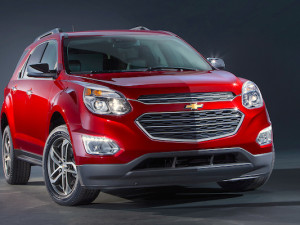 The current non-plug in hybrid car market had a wide range of models available, though there is still a lot of room for improving selection. The same can be said even with the plug-in electric cars. There are some cars that are likely to garner widespread acceptance and trigger competitors to catch up. Here are some of the concepts worth considering are:
The current non-plug in hybrid car market had a wide range of models available, though there is still a lot of room for improving selection. The same can be said even with the plug-in electric cars. There are some cars that are likely to garner widespread acceptance and trigger competitors to catch up. Here are some of the concepts worth considering are:
Chevrolet’s Equinox Plug-in Electric Car
This would be a practical plug-in car that can comfortably accommodate five people, and has great winter traction. Additionally, this car should have a high efficiency without taking the position of a green halo. It would be something sensible to consumers. The EV range of this car would be 37 miles and on gas, 37 mpg, with a retail price of $34,995.
Ford’s F-150 Plug-in Electric Truck
This truck should have an EV range of about 38 miles and a gas range of 31 mpg with a retail price of $39,995. Ford is an automaker that is known for its superior powertrain engineering coupled with patents with Toyota. The automaker has also shown willingness to come up with aluminium-body innovations and engines with a downsized turbo. So, Ford has no reason for not taking upgrading its best-selling truck in America. This model can sell approximately 700,000 units per year. Consumers will find it to be utilitarian and important for commercial applications requiring light duty.
Although Tesla had made clear of its intentions to produce a fully electric pickup, no other automaker plans to do so. This is a great opportunity for Ford to take advantage of its market position and produce an electric truck with a great EV range. This will come handy for daily gas-free driving. It is still unclear whether Ford has such a plan. However, spy photos in April showed what seemed to be a test mule for the F-150 with a powertrain of a plug-in hybrid. Reports indicate that the automaker might produce it as early as the year 2020. Only time will tell.
Well, the sky should be the limit since these are simply a few ideas that automakers need to consider. Currently, there are regulations pushing for the minimization of fuel consumption in different product selections. Green cars have been shown to have numerous merits in terms of cost saving, especially on gas. Automakers need to build assembly lines, link up with suppliers, as well as conduct extensive testing and R & D. This will ensure that they produce cars that sell and that are preferred by consumers.